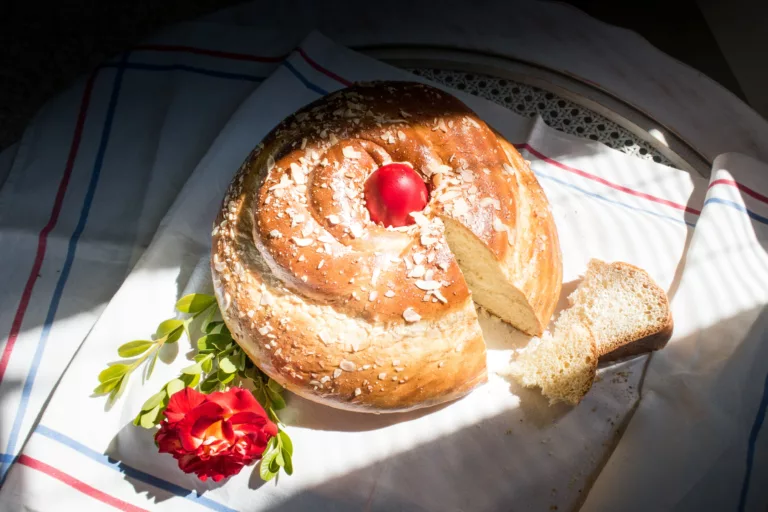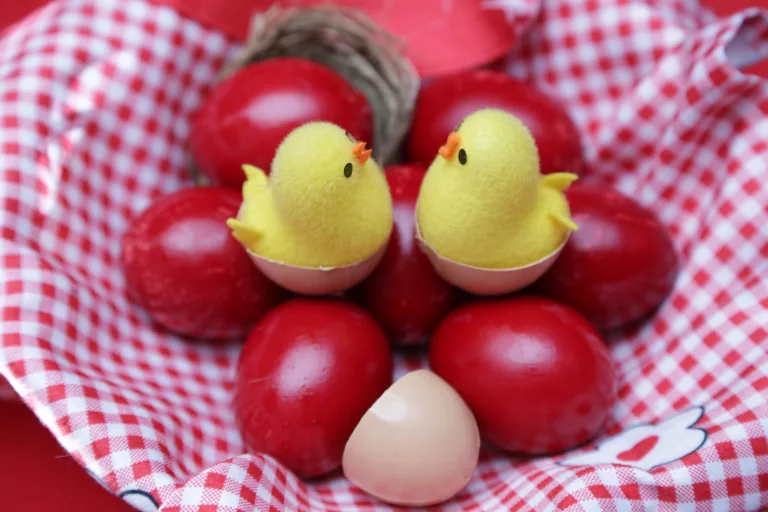At CEL Solicitors, we like to promote diverse and inclusive narratives through the work of our diversity committee. Paralegal, Dora writes about Easter celebrations in Greece.
In Greece, Easter is one of the most significant holidays. Most of the country is very religious, and the Greek Orthodox Church celebrates the resurrection of Jesus Christ along with the arrival of Spring.
There are a lot of interesting traditions that take place not only one day but a whole week and it would provide you with a unique experience if you ever were to visit the country during this time.
Greek Easter is the most significant religious and cultural celebration, but nowadays younger people tend to move away from religion. Despite this, many non-religious Greeks still follow many of those traditions, as they are a big part of the culture.
7 weeks before Easter Sunday the Lent or Sarakosti begins. During this period the people who decide to join will go on a special fast as a symbolic move to cleanse themselves before Easter.
The majority do not follow the 7-week period, but rather do it only for 7 days or the week known as the Holy Week (Megali Evdomada).
The Holy Week is very special for the whole country and some days of the week have a unique tradition linked to it.
From Holy Monday to Holy Wednesday there are no typical traditions that take place outside of the Church.
From Holy Thursday up until Easter Sunday there are certain things that almost each Greek home does.
Holy Thursday is a fun and delicious day. On this day we all bake easter cookies – koulourakia, Tsoureki (a sweet wonderful brioche bread), and dye hard boiled eggs in red colour. (I know, no chocolate eggs, yet. We love our protein.)
We typically cannot eat these eggs until the night of Holy Sunday after the resurrection of Jesus takes place.

Holy Friday is a very emotionally heavy day. It is known as the day that Jesus died. The Church bell rings very slowly and in a rhythm that symbolises death. You cannot quite hear this if you’re in a big city but in all smaller towns and villages it can be heard, and everyone feels the same atmosphere of mourning.
On this day you can’t clean your house or play loud music. People will embrace the spirit and idea of mourning even if they are not a believer.
Women go to the church from the early morning and prepare what is known as ‘epitafios’. This is a wooden construction adorned in gold and silver and it illustrates the dead body of Jesus. It is always decorated with flowers. This is a ceremony that takes place in every city, town, and village of the country. Around 8pm, the epitafios is carried around the area and behind it there’s people who follow the procession carrying candles.
Holy Saturday is the day Jesus Christ resurrected. It is a typical day throughout daytime but once the sun falls, people go to Church in formal outfits holding their personal Greek Easter candles known as lampades. These candles are what all godmothers and godfathers buy for the kids as an Easter gift and there is a variety of styles and designs to choose from.
After the clocks turn 00:00 on Saturday night/ Sunday morning, the Church bells ring very loudly to symbolise that Jesus Christ has come back to life. Everyone starts hugging each other and queue to go and take the ‘Holy Light’ (Agio fos) with their candle which arrives from Jerusalem. During that time there is always footage in the news of the light arriving in the capital, Athens, by plane, showing how it is guarded and protected until it reaches every Church.
Once the bells have rang, people kiss each other on the cheek repeating the phrase ‘Christos Anesti’ which translates to Jesus has risen.

When the Holy Light has been obtained, everyone returns home to enjoy the first family meal (yes, past midnight) where they can eat whatever they want. At this point, we are allowed to eat meat again and also crack red eggs.
It is difficult to explain what cracking the red eggs means but it’s essentially a game. A friendly battle with one another where each individual picks an egg and cracks it with another individual’s egg. The person who’s egg cracks first loses. It is a playful tradition that everyone looks forward to.
One of the most traditional meals that people eat after the Church is a dish called ‘Mayiritsa’. It is not everyone’s cup of tea as it’s a special soup containing goat or lamb intestines, kidneys, and other ingrediants along with rice, herbs and a lot of lemon.
Easter Sunday arrives, and it is a big celebration from early in the morning until late at night. There is the Lamb or Goat preparation which is always accompanied with drinking and blasting festive music.
This day is a big day for all meat lovers, especially after the Lent. A whole lamb or goat is marinated for hours in herbs and spices and then put on the spit to slowly cook on charcoal.
A Greek Easter table has always either lamb or goat on it, a lot of alcohol and various salads, pies, potatoes, and vegetables.
By the end of the day, everyone is well fed (to the point where we all complain about how much we’ve eaten), a bit tipsy (unless you are the drunk uncle – we all have one of them), and in a great mood. Chocolate eggs may appear as well, mainly for the children as it has been incorporated in the culture during the recent years.
I look forward to travelling back to Greece this year to celebrate Easter with my family!













